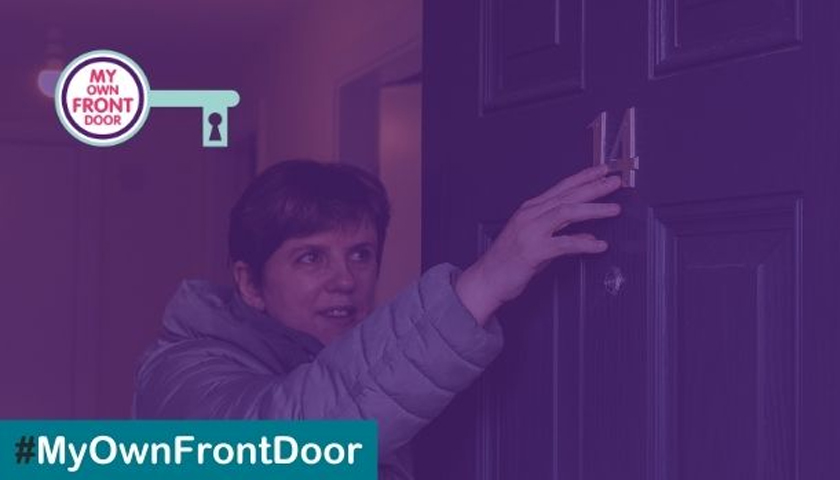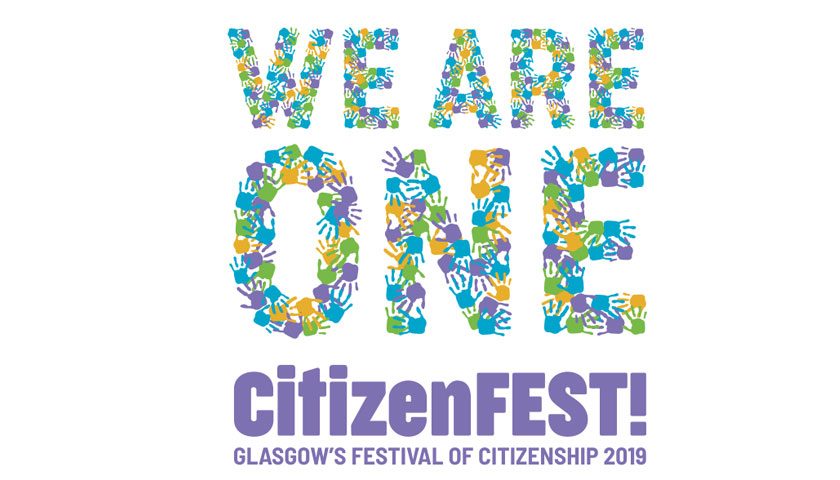A new campaign has launched to unlock the door for hundreds of adults with learning disabilities to have the right to a home they choose and to live in the community of their choice, as Scotland’s largest member-led charity calls on society to address the “human rights scandal” facing people with learning disabilities in Scotland.
ENABLE Scotland’s latest campaign – #MyOwnFrontDoor – is being led by the charity’s 12,000 strong membership and supporter network to address what it describes as a “level of discrimination that we do not expect and would not expect other people in our society to bear“.
Due to lack of support to live in their own communities close to their loved ones, official data reveals that over 1,000 adults have been sent by Scottish local authorities to live ‘out of area’, meaning not in their home local authority area. Beyond this, a further 67 people are living in hospital. 22% of these people have been there for more than 10 years.
Despite a Scottish Government report highlighting this issue in 2018, which recommended that better specialist social care support should be available across Scotland to support these individuals to live in the community of their choice, there has been no monitoring of progress, and ENABLE Scotland fear that the situation has deteriorated further.
The campaign is calling for urgent action to end hospital living for people with learning disabilities; and to put immediate plans in place to ensure that all people in delayed discharge or who have been displaced ‘out of area’ are supported to return to live in the home they choose and the community they choose, close to the people they love by 2023. Already the charity supports 6,000 people to live independently across Scotland, including some people who were previously living in hospital or other institutional settings for many years, or who have been fighting for their rights to live closer to their families.
People, like Nova, who ENABLE Scotland helped to support to move back to Scotland from England and live in her own house, close to her family. Before ENABLE Scotland got involved, Nova, who is in her early forties, was offered a placement in a care home for the elderly and it took more than a year to support her to get her own keys to her own front door.
Launching the campaign, John Feehan, an adult who has a learning disability and who is an active member of ENABLE Scotland, said:
It can be so hard to speak up for yourself when you have a learning disability. It is even harder to make people listen. That is why I am speaking out. It makes me so angry that other people who have a learning disability are stuck in hospital, or being forced to live far away from their families. This has been going on for too long now.
Some people think that people who have a learning disability are not able to live in local communities like everyone else. They think that that it is easier for them to be locked away in hospital, or to live with lots of other people who have a learning disability. That isn’t true. It is only because the right support is not there – it’s not the person’s fault. Anyone can live anywhere with the right support. If they don’t want to be where they are, people need help to get back to live close to their families or to get out of hospital – right now!
Jan Savage, Director of ENABLE Scotland, said:
This is a human rights emergency. It is a national scandal – hidden in plain sight. People who have a learning disability – brothers, sisters, sons and daughters – are being forced to live far from home, to “live” in hospital, or to live in care settings where they are uncomfortable and unhappy.
I am sure that people will be shocked to learn about the situation our fellow citizens find themselves in. But they should be reassured that better is possible. Clear and decisive action is now required to adopt a ‘Community First’ principle to end the practice of people being sent out of area; to nationally invest in high quality, consistent, specialist social care support to be available in every community; and to stop building new multi bed units for people who have a learning disability. These are not the solution – they perpetuate the problem.
We cannot wait any longer. People who have learning disabilities are being subjected to a level of discrimination that we would not, and do not, expect other groups in our society to bear. We are determined that this campaign will start a movement for change as each and every one of us stand up for the human rights of all people with learning disabilities in 2022.
The keys to unlocking their own front door are in our hands.
John Dalrymple, Director of Radical Visions, said:
Everything we know about the disastrous effects of segregation and exclusion and all the evidence we have about good social care practice argues for an immediate halt to the placement of people in institutions. Everything we say we believe about basic humanity, independent living and universal human rights compels us to support campaigns like #myownfrontdoor and ensure that in future no-one is denied a home of their own.
A new campaign report from the charity – My Own Front Door – proposes five key steps that public bodies must take now to unlock the right to an own front door for people who have a learning disability. The five keys are:
- Close all Assessment and Treatment Unit (ATU) beds and end the practice of Scottish citizens being sent out of the country.
- Immediately implement a Community First principle for the commissioning of support for all adults and children who have a learning disability in Scotland – ending the commissioning of multi bed units.
- Invest nationally in a Specialist Provider Network to improve local support in every area in Scotland.
- Maintain a national at-risk register and ensure that everyone identified on this has a plan by 2023 to come home to the community of their choice.
- Create a national Community Living Panel to ensure oversight and accountability of decision making about individual placements.
As part of this campaign, the charity is offering support and advice to any individual or family who is affected by this issue, and is asking members of the public to raise the issue directly with their local MSPs.


